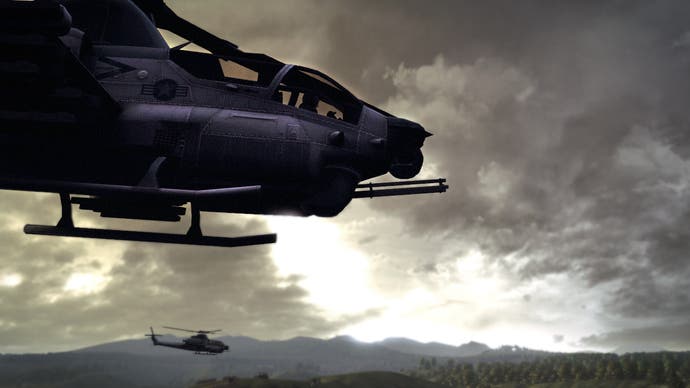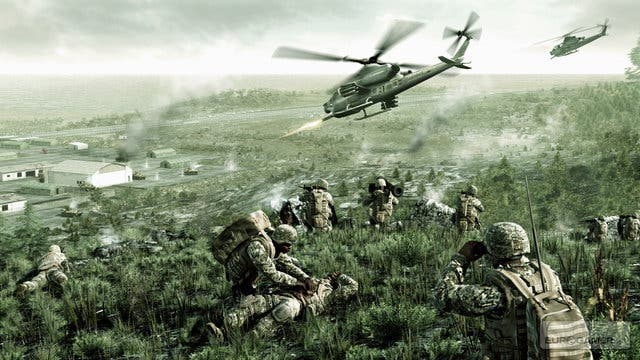Operation Flashpoint 2: Dragon Rising
Chasing dreams.
If there's one game that needs a sequel, it's Operation Flashpoint.
"It was a game with a lot of potential," observes the game's senior designer and lead AI designer, Clive Lindop. "People fell in love with it even though it had lots of quirks and lots of things weren't quite right with it, but its promise, and the fact that it was unique kind of drew people in."
And draw people in it did. Released in the summer of 2001, the PC-only military shooter sold well over a million units and spawned two successful expansion packs, Red Hammer and Resistance. Such success proved that despite (or possibly because of) its brutally uncompromising approach to the genre, gamers were hungry for a title with scope, ambition and freedom. Admittedly, the visuals were rubbish even then, but what lingers in the memory are the moments of palm-sweating tension as you snuck through a wood or crawled through a field with enemies just feet away from you.
Seven years on, Codemasters is finally ready to take the wraps off the long-awaited follow-up. "There's a reason for that," Lindop says about the delay - but declines to clarify further. The well-documented souring of relations between original developer Bohemia Interactive and Codies certainly didn't help, and meant that the UK publisher was faced with either binning one of its most successful original IPs of the decade, or going it alone. So, in 2005 the company took the latter option and essentially built the game from the ground up.

"We've built all the technology from scratch because it's the only way of [taking] that original promise forward," Lindop says. "It's taken a lot of time and effort to get the technology to the point where we can do these huge landscapes, these massive battles and all these effects and all this impact with a visual delivery and an experience which is 'next-gen', for want of a better word."
But hardcore fans fearing their beloved game will be watered down for the masses needn't fret. "It's still very much from a simulation heritage," he confirms. "But rather than that kind of slight detachment you get from sims where it's all about the numbers and the kit, we wanted to amp up the kind of experience so that you [feel like you] are really there, having bullets flying at you."
We're told to expect a game that's "stylistically a lot more documentary-style" and can look forward to crazy amounts of attention to detail including "kit [that] doesn't just roll out of a factory fresh - it gets muddy, it gets scratched. We want you to feel these are real, in your hand, getting battered as you dive around running past things."

While the original game was set in 1985, Operation Flashpoint 2 opts for a real-world, contemporary setting where you're squabbling for oil. "The game itself is set on an island called Skira, which is off a chain of islands called Scarlett - north of Japan, east of China. It used to be Chinese, then the Japanese nicked it during World War II, then the Soviets liberated it and never gave it back," Lindop explains.
"It's a backwater of history, not a geopolitical hotspot, except... The world's largest oilfield is underneath it. It was found about ten years ago, and everyone's been trying to develop ever since. That's where the tension and back-story come from."
As you might expect, Flashpoint 2 favours vast, sprawling environments which can accommodate battles of impressive scale. We're told that the island itself spans 220 square kilometers or 134 square miles, and that the viewing distance is about 35km ("It's a damned long distance to see!").


